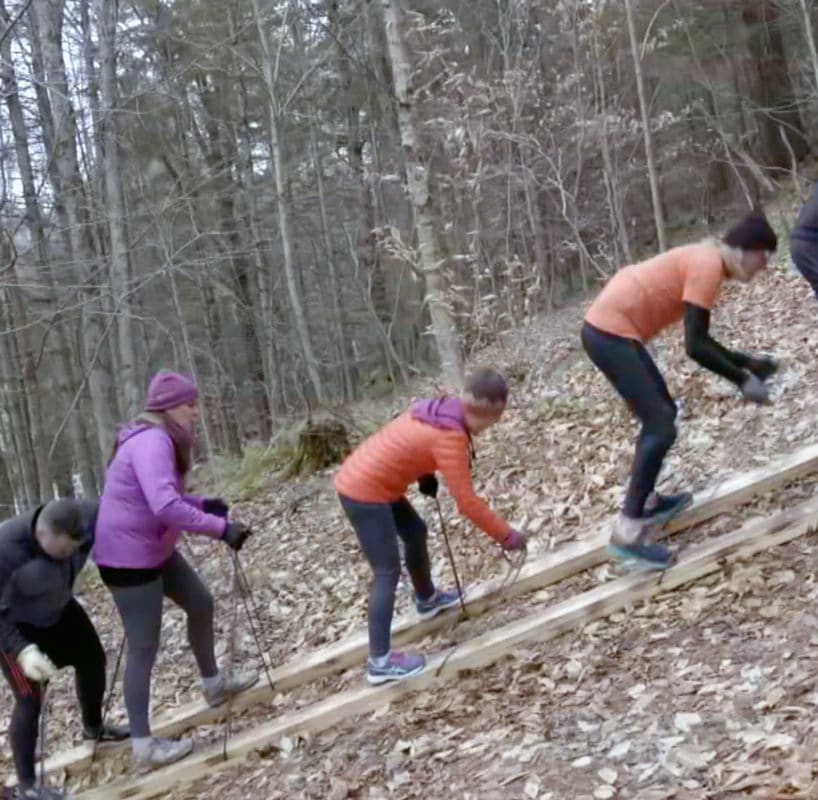Blog, Company News
What We Learned From Being on No Retreat: Business Bootcamp
When we had the chance to work with Joe De Sena on his new reality TV show No Retreat: Business Bootcamp, we were excited and hesitant. The show presented us with an opportunity to get world-class business coaching from a like-minded entrepreneur. However, the show’s premiere season meant we had no idea what we were getting ourselves in. All we knew was that Joe was the host, and we would be going to his farm and put through a series of tasks as a team. Besides, we didn’t think we had any issues – we have a great product, we’ve been growing like crazy, and we were on the verge of national rollouts with multiple retailers and distributors. So we must be doing something right.
What we didn’t anticipate was that the timing of our experience at the farm couldn’t have been better. We are on the cusp of a hyper-growth stage for SGC. And, like any young company, we’ve experienced our share of growing pains. However, minuscule growing pains can have disastrous consequences if they go unaddressed. Being on No Retreat helped us tackle our issues head-on. It’s a critical time for our company: if we can’t solve these problems now, we won’t survive as we open up larger and larger retail customers.
Fulfillment
Fulfilling orders is a big deal. Getting orders correct and on time is table stakes. It has a considerable impact on customer satisfaction and confidence in your brand. If we can’t get our current orders right now, the problems will only worsen as we grow. As any new brand will tell you, they know how much effort it takes to acquire every new customer. We are robbing ourselves of future sales if our customers can’t trust this basic capability. Moreover, fixing mistakes comes with high costs and overhead.
The show helped us realize that building the infrastructure around order to fulfillment isn’t easy. Numerous SKUs combined with rapid growth on multiple channels present a unique challenge for a growing brand. So, how did we solve our fulfillment dilemma and reduce fulfillment errors by over 99%? Check back soon to learn more on our next blog post.
Communication
Starting a company requires an entrepreneurial mindset. At SGC, everyone is very hands-on with a bias toward action and a do-whatever-it-takes-to-get-the-job-done attitude. We’ve been that way from the very beginning. It’s all hands on deck, all the time. To maintain this entrepreneurial spirit as we grow, we developed a set of guiding principles to help us be both high-functioning and autonomous. It’s important for everyone we bring on board to get accustomed to our guiding principles and understand the expectations of a small company. Large companies have clear hierarchies and established communication channels and procedures. So how do we balance the entrepreneurial mindset with clear communication as we grow? That’s a topic for another post.
Switching Costs
We all wear a lot of hats at SGC. It’s the nature of working at a start-up. Most people can relate to the burden of switching costs at their job. How often have you gotten to the end of the day and feel like you’ve accomplished nothing despite being busy all day? In a start-up, the switching costs are even more because of the variety and difference of tasks. For example, where else can you go from execution to strategy, from HR to customer service, from marketing to inventory management, and from sales to accounting – all in one day! Each task requires a different mindset and part of your brain.
We tend to gravitate to the areas we are good at, but we spend a lot of time on tasks outside our comfort zone. While we are happy learning and applying new skills, it is time-consuming and inefficient to do it all the time. No Retreat showed us the psychological effects of constantly switching from one task to another. At a large company, people have more specialized roles. At a small company, you must be a generalist; however, scaling the company in this manner is inefficient. Learn more in the next blog post about how we find balance.
Teamwork
At the end of the day, there is no substitute for good old-fashioned teamwork. While the tasks Joe put us through helped shine a mirror on what is going on in our company, the biggest learning was the value we got from getting out of the office and spending time together as a team. Getting away from the day to day in a different environment helped us reflect on where we were at as a company and develop a plan of action on where we needed to go.

